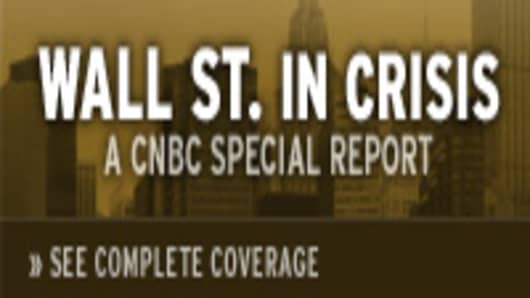But even in such a large swindle, there are lessons for every investor. Experts offer five basic strategies for avoiding the kinds of traps that Madoff's victims fell into.
1) Understand Your Investment
The web Madoff spun took in some of the most sophisticated investors in the world, including DreamWorks CEO Jeffrey Katzenberg and famed director Steven Spielberg.
While Madoff told them he was using a fairly uncomplicated blend of stock and options buys, authorities now believe—as some analysts have previously suggested—that there existed clear discrepancies between what Madoff said he was doing and the correlating numbers in his trades.
Such obfuscation should have been a clear sign that something was wrong.
"You sometimes see situations where people invest in something based on a rate of return without really understanding all the mechanics and the substance of the underlying assets," says Bill Leone, a partner at Faegre & Benson and the former U.S. Attorney for Colorado. "I think for investors it's generally a bad idea to invest in something you don't understand."
Investors should get a full breakdown of where their money is going with any fund. But sometimes the enticement from the types of returns Madoff was generating before the scheme blew up are too irresistible.
"Twenty years ago you had sophisticated investors that were buying and selling into the market," says Julie Murphy Casserly, president of JMC Wealth Management in Chicago. "Today, that's not the case. You have people who are very uneducated investing in the markets. They don't understand how to analyze a portfolio."
But they do know how to chase returns. Which leads to the next point...
2) Don't Chase Returns
The biggest incentive to buy into an investment vehicle, of course, is that it's generating big money for its investors.
But in many instances, especially in cases like the Madoff fund, by the time big returns are getting noticed the investment has already seen its best days.
"People are chasing the number, and most of them get into them after the returns have already been had," says Casserly, who cites last year's popular emerging markets trade as an example.
She points out that $1.9 trillion went into developing economies in August 2007, just at the point that institutional investors were pulling out. In 2008, emerging markets have tanked as the global recession has spread.
In the case of the Madoff investment, the Ponzi scheme by design is set to reward those who get in the game first, who are then paid returns with money that comes from later investors.
The damage is especially egregious to those who put most or all of their savings into the funds.
3) Remember Not to Put All Your Eggs...
In one basket—or one financial adviser.
"You might trust someone, but I encourage people to get a second opinion especially in this environment" says Joan Kane, founder and director of Investment Planning Solutions in Fairfax, Va.



